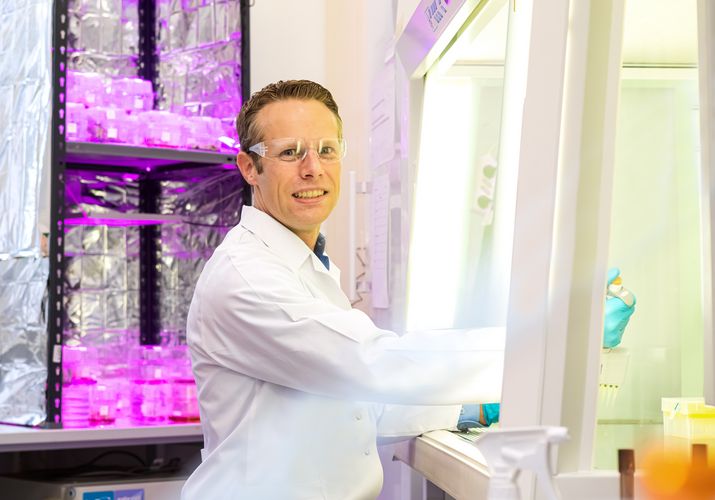Does it surprise you that several vaccines against COVID-19 will soon be approved in Germany?
“No. This is because the majority of the time to develop the COVID-19 vaccines this year was needed to conduct the clinical trials. For scientific reasons, these take a similar amount of time for all companies. This is why different vaccines are coming onto the market at almost the same time. The first two vaccines from Pfizer/BioNTech and Moderna, which may now be approved soon, use new mRNA platforms which involve injecting genetic material. These platforms were specifically designed to respond quickly and flexibly to new threats, and now only needed to be adapted to the new coronavirus. It was possible to build on research done in recent years, as there were already potential vaccines against other coronaviruses.”
What are the risks of developing these vaccines so quickly?
“The phase where the vaccines’ safety is tested has been done as it always is. So the risk is similar to all other vaccines. Time was saved in other areas, such as preparation and in the intermediate phases of clinical trials. In addition, the current data includes only a few months of follow-up, so subjects will continue to be monitored. Factories were also built long before it was clear whether the vaccine would work. The large financial risk taken by companies was mitigated by confirmed advance orders from many countries. Normally, companies wouldn’t build up large production capacities when the safety and effectiveness of a vaccine is not yet known. Things were handled differently in this case because of the particular global situation.”
Vaccine opponents and other sceptics say it can’t be healthy for a vaccine to be developed so quickly. How do you see it as a scientist?
The two major companies whose coronavirus vaccines are about to be approved, have been developing their respective vaccine platforms for more than a decade, with the flexibility to adapt to new threats. In both cases, these platforms have already been tested in human clinical trials years ago, but against other diseases. A lot has also already been achieved in the past when it comes to developing vaccines against coronaviruses, such as SARS-CoV-1 and MERS-COV. This research has now been adapted to the new coronavirus and integrated into these flexible platforms.”
So the health risks with these COVID-19 vaccines are no greater than with others?
“In the clinical trials conducted by the two companies, nearly 40,000 people received one of these two vaccines. According to the data made public, no major problems were reported. Of course there were normal side effects such as redness, swelling and fever. As with any new drug, it is not possible at present to completely rule out very rare, more serious side effects. For example, it was recently reported that severe allergic reactions occurred in two patients after the start of mass vaccination in the UK. These, as well as any other rare side effects, will still be monitored closely – just as they are with other drugs. But one thing is for certain at this point: the risk posed by coronaviruses to humans is far higher than that of vaccines.”
You yourself are researching a vaccine against COVID-19. How are you progressing and will the compounds that are about to be approved help your own research?
“At my last employer, the Scripps Research Institute in California, I conducted research into a vaccine for COVID-19. Even if working vaccines will soon be readily available, this won’t render my work superfluous. Because here in Leipzig, I hope to develop a broader vaccine in the long term that also covers other coronaviruses. This would prepare us for the next pandemic. No one knows when that will happen. But this is now the third time in 20 years that a coronavirus has jumped to humans. Having said that, it’s much more complicated and will take years to develop a vaccine against a number of viruses that are still unknown.”
Thanks to the Alexander von Humboldt Foundation’s Sofja Kovalevskaja Award, you will be spending at least five years at Leipzig University. Is it realistic to expect a general vaccine against coronaviruses in this time frame?
“It’s really hard to gauge. We’ve only known about the current coronavirus for a year. I’m waiting for specific data to come in from other labs. The aim is to find antibodies in the blood of convalescents that can fight several coronaviruses at once. This would show us the viruses’ weaknesses. Then I’ll try to induce precisely those kinds of antibodies with a vaccine.”































































